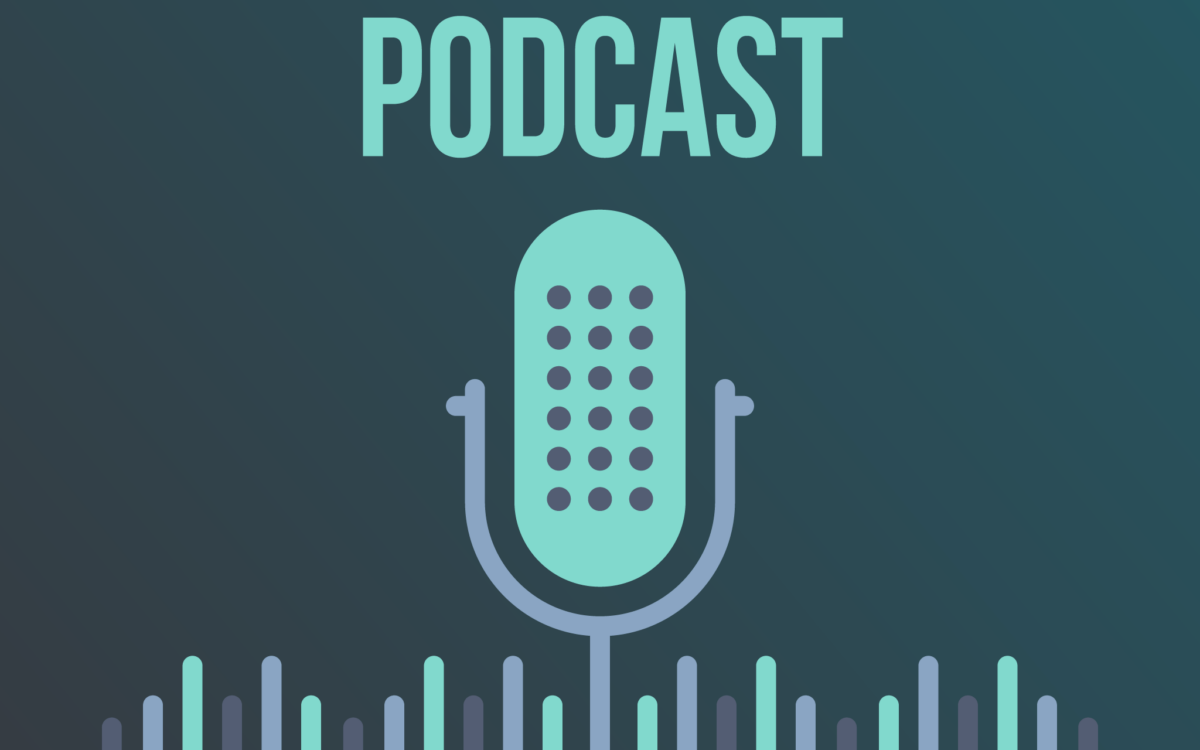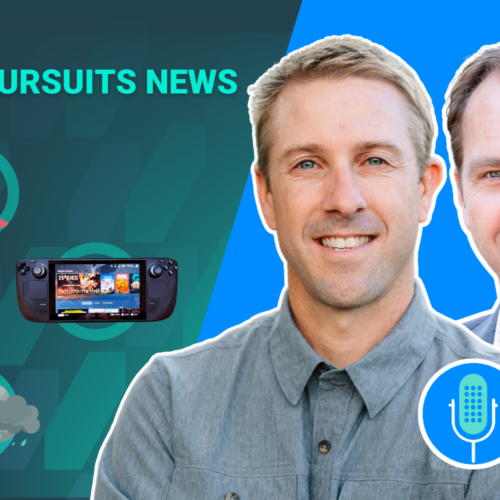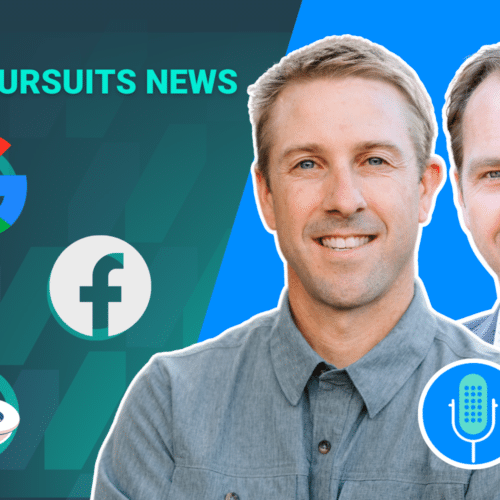Podcast 152: 3 Advanced Strategies for Building Links with Sam Williamson

When you buy something through one of the links on our site, we may earn an affiliate commission.
Welcome to another episode of the Niche Pursuits podcast!
In today's episode you will hear an interview with Sam Williamson from LinkJump.co.uk.
Sam is a long time Niche Pursuits reader and also happens to be a link building expert. Sam has his own affiliate websites that he works on and he also has a small link building agency where he helps a few clients.
What I love about Sam's strategies is that they are creative, but also white hat. These are strategies that should stand the test of time and can help you gain some valuable links.
The 3 strategies that Sam covers in-depth are:
- Broken link building (with some interesting ways to find broken links).
- Niche subReddit link building.
- Creative Commons image links
Here's the Guides or additional resources Sam has provided for those:
Listen in to get Sam's full story as well as his link building strategies. Enjoy!
Full Transcript:
Spencer: Hey, everyone. Welcome back to the Niche Pursuits Podcast. I'm your host, . Today is a really great interview with Sam Williamson of linkjump.co.uk. Sam is a longtime Niche Pursuits reader and podcast listener. In fact, we'll talk about that a little bit in the interview here. Sam builds his own affiliate websites but he also has a very small link building agency. I brought him here to talk specifically about some link building strategies and through this interview, you're going to hear three very specific strategies. He covers them in depth, very step-by-step process that I believe, after you listen to this podcast, you can go and implement these three link building strategies right now on your website.
The first one is broken link building. Yes, broken link building has been around for a long time. Sam shares some tweaks to that strategy using Wikipedia and some other strategies there that I think are pretty cool. The next one is niche subreddit link building. I'll let him dive into what that is exactly and how to make that work. Finally, Creative Commons images link building, how to use images to both get links, and hopefully drive some traffic to your website.
If you're looking for some unique or new ways to build links to your website that are 100% whitehat, you should listen to this interview. Sam Williamson from linkjump.co.uk definitely delivers here. I hope you enjoy the interview.
Hey, Sam. Welcome to the Niche Pursuits Podcast.
Sam: Thank you very much. Thanks for having me. It's an absolute pleasure.
Spencer: Yeah. We connected not too long ago but you've been reading along with Niche Pursuits for a little while. How did you first come across Niche Pursuits?
Sam: Just after university. I left university so early. It was 2015 and I was very jaded with the idea of going into the world of work, nine-to-five sort of thing. During that brief period between leaving university and getting a job, I was frantically looking for informational line about other things I could do. I totally just stumbled across Niche Pursuits and your content. I remember listening to a few episodes. The one that really sticks in my mind is the one about the woman who was a dentist. I remember her strategy was site: and allintitle: and things. She actually was using search parameters to determine the competitiveness.
I was reading about niche sites. Initially, I think, this seemed expensive. I need to get some tools. I don't have money. She basically said, “Just look at the search. Look at the competition,” and that really resonated with me. I was just trying to do it, bootstrap it because I could. Just from there, I remember just following along for a long time. It set the lights to be on.
Spencer: Absolutely. It's a pleasure to have you. It's great to have people that have been either listening to podcasts or reading, reach out, and wanted to give back a little bit. That's definitely why you're for. For people who are curious about what episode you're referring to, the dentist, that was Claire Smith. It was podcast episode number 57. People can look through that. To this date, I believe, it's been the most popular episode that I've ever recorded still to this day.
Sam: I think it was just something that resonates with people. There was no pretense with her. She just sounded like a very polite, normal lady. She was obviously absolutely killing it. It really struck a chord with me especially.
Spencer: Absolutely. Yup. It was a great episode. To get a little bit more background on you, you mentioned you were going to university. You have a period there were maybe you worked a little bit but weren't that interested. Maybe just give us some of your work experience and how that led to online business.
Sam: At university, I studied languages. I was always determined to learn languages and I wanted to travel. It was probably around my second year at university, I started to realize, actually, unless I was a freelance translator or something like that, it was very likely I was going to end up being a teacher which didn't excite me too much at that time, especially when I'm still young.
I started to dip my toes and did some freelance translation. I was finding people on a website called Gumtree, which the equivalent in the US is Craigslist, and finding people who just wanted a document translated. I would get paid into my PayPal account. There was this very off-hand freelancy feel which really excited me all the time because I was doing the math in my head. I thought I only need 10 people per month. I can earn as much as I would earn if I was working at a supermarket.
My mind started racing with the idea of working for myself. That's where that seed was planted. Then, I started thinking of it bigger—thinking about building my own website and growing it using traffic, realizing that the best traffic was organic traffic. That's how I started going to the SEO.
Spencer: Did you essentially never really worked for anybody else? It sounds like you started doing freelance stuff and that has lead into what you're doing now.
Sam: I've worked at a couple of agencies. Again, I wouldn't change that experience for the world. While I was at the agency, I was still experimenting with my own things. I learned so much working. They were both […] agencies, I should say, and I was […] role in both of them. I learned so much about tools, about talking to clients, about having to work to extremely tight that lines, and having to get really creative.
My first agency, I was having to build links for almost 10 different websites. I had zero budget allocated to link building. At the time, it caused me a huge amount of stress, but now, I look back on and I was like, A lot of the things that I do now or completely done to how creative I’ll have to get during those early days, so I'm grateful for that experience.
Spencer: Yeah. Good learning experience, for sure. It is paying off for you. Why don't you talk a little bit about your business right now? I know you have a couple of different things going on. If you just give listeners an idea of what you're involved in, what your business looks like right now.
Sam: My main thing is what I'm talking about today, is link building. My link building business is called LinkJump. The moment I just deal with a handful of clients. I'm not in the business of trying to service as many people as possible. I like to work really close to clients who get my ethos and I’m buttoned to what they're doing. I typically find that works best. There's going to be some ideas that maybe I took forward the people won't necessarily want to buy into because it's going to require them to produce content or put content on the site in places where they don't want to, and things that take risks. Luckily I have managed to find businesses like that, I find nothing really more exciting than that.
I also do a lot of affiliate marketing. That's another important part of my income. Again, a lot of that activity is paired by link building, competing in some pretty competitive industries. One of the great things about affiliate marketing is you're not just pairing a client site. You're pairing your own project and you can afford to be even more creative because you're not representing a brand. Your representing yourself. You should take more risks. That’s the breakup at the moment.
Spencer: How many affiliate sites are you working on right now?
Sam: It's mainly just one large one to be honest. There is another one that I've had for a long time which is being quite consistent earner. There's one large one which is one of those great sites that’s becoming an authority site. You can publish things in their index very quickly. They can start getting traffic pretty quickly provided that they're low to medium competition terms. I just think it's not too niche. It’s quite a broad topic, but there's a lot of shoulder niches as I call them. There's lots of different areas I can dip into, like […] who's on a few episodes ago. It's quite a broad topic that that site covers, but they can dip into lots of different niches and create content within those niches. That's how I've tried to structure this site as well and it's working well.
Spencer: How well is it working? Can you give us an idea of income members or other success members for the affiliate sites?
Sam: Last month, my affiliate income was around about $8000. It's a good chunk of income. Certainly, if you told me in 2015 when I was translating a thousand words for $10 that I would have a site making that much, I wouldn't believe you, but it's possible. Also, I'm writing about something that I’m very interested in. Anyway, it's a great position to be in. I'm looking forward to continuing to scale it and grow it.
Spencer: Absolutely. Very good. That's $8000 a month is a big number. Honestly, that's more money than most people make full time with a regular job. It's pretty cool what you can do with building your own websites especially being an affiliate where you don't actually own any products; you're just referring people to other places.
I want to jump into link building because certainly that's where your expertise lies. You even have a small agency where you're doing link building but you're of course doing it on your own sites as well. Let's dive into some specific link building strategies. What's a strategy that you would recommend for people building niche affiliate websites?
Sam: If I had to hang my hat in one strategy, I mean only one, I would say broken link building, 100%. I just think there's something so wholesome about it, something so longterm. You're not just building links. You're going to build connections. It's completely whitehat. It's very safe. You're going to get links inserted on pages with age, pages which are ranking for terms, which could try for referral traffic. It's literally a case of emailing people, telling them about a broken link on a page on their site, and offering your content as a replacement. It's so simple. It's very scalable which why I like it.
If there was one tactic that I would recommend to anybody with an affiliate site, I would say, broken link building. Actually, if you're ever struggling to think of new content for your affiliate site, what I would actually recommend is finding broken links in your niche. Something I love to do is head to the Wikipedia page or the various Wikipedia pages that are related to what your website topic is. Look in the external link section, at the bottom of the Wikipedia article, and check for any broken links down there. Usually, you'll find a few. Then, you want to stick that URL or if it's an entire site—even better—into Ahrefs and export the external links.
Have a look at what those sites were linking to previously. What is that page or website used to be? Think about how you could create a version of that, not just to click the links, but also to potentially rank for a term which is relevant to your site. I think that's a great way.
If you ever sat staring at the computer and you're thinking, “You know, I'm going to publish this 5000-word article and I don't even know if it's going to rank.” I think it could be a really good way to reverse engineer it. Start with knowing where you're going to get the links from. Then, build the content. That's something I really like about it as well. It gives every piece of content a purpose.
Spencer: Yeah, that's really interesting. I want to break this down. It's as easy and step-by-step to follow for listeners here as possible. I think, probably, everybody knows what broken links are. Maybe we don't need to divein into too much what that is. I think you explained that pretty well. One strategy you're saying is step one, look up certain topics that might be in your niche on Wikipedia, right?
Sam: Yup. I would always start with Wikipedia because it's the biggest resource on the internet. There's always external links at the bottom of those pages. Actually, one little protip that you can use is, say for example, you've got a website about a furniture and you find a Wikipedia page about recliner chairs. You look in the external links section at the bottom. You don't find any broken links. What you can then do is take that Wikipedia page, put it into a tool called the Wayback Machine which shows you what a page used to look like over the years. Sometimes it could go back as far as 10 years. You can put that Wikipedia page into that Wayback Machine and check five years ago for the websites that were written in the external link section. Check seven years ago, you're going to find even more websites that were broken, then removed, and then replaced. You could compile a great little list of deleted pages and websites that no longer exists. That can really form the basis of your content.
Spencer: Are you really doing all of this manually?
Sam: I’m a big believer in this that 90% of broken link building is the prospecting. I've tried a huge amount to scale, automate, and potentially make the prospecting easier. I've always been let down a little bit by some of the tools I've used. I played around with things with ScrapeBox. I don't think anything beats just getting your hands dirty and having a look.
The worst thing you want to do is waste time prospecting. If I'm emailing sites and I'm telling them about broken links on their website, I want to make sure that they are the perfect prospect. I know that their website is up to date, I know that they're accepting corrections to their website, for example. I want to make sure that every email I send has got a high probability of resulting into links. I think the key to that is spending time with the prospect.
A lot of people do say, “You could use this, you could use that.” That’s fair enough, I think. It should all be adapted, experimented with, that was just the way I look at it. I think I'm a bit of a perfectionist in that way.
Spencer: Yeah. That's good to know. I'm just curious if you were doing it manually. For listeners, certainly, those that are just starting out, that makes it easy if they don't have to use any fancy tools. They can just go out, they can visually see and check on what links are broken, and go from there.
Sam: Yup. With Wikipedia links, that can be done very quickly and manually. Quite often, another thing that I'll do using tool Ahrefs, which I highly rate, is they've got a great function which is a broken links function where you can put a domain into Ahrefs and check for any outgoing broken links on behalf of their site. It was something I love to do.
Say, for example, I'm in the travel niche. Something I would love to do is take the biggest sites in that niche, put them into Ahrefs, check for the outgoing broken links. Then in a new tab, check each program link to see if any other sites are linked into it, and then add them into my list of broken pages for content recreation. That's another little thing you can do. Again, that requires a tool. It's a bit more advanced.
Spencer: That's good. Sorry, I might take a slight step back just to get the steps here. Going back to the Wikipedia one. Step one, find the broken links whether that's on the existing Wikipedia page, or using the Wayback Machine, to find those broken external links on the Wikipedia page from a few years ago. Once you find those broken links, then, you recreate a piece of content that they were linking to? Correct?
Sam: Yeah. You've got a broken link, the broken page, then, you've got the people who are still linking to that broken page. Those are our prospects, the people that are still linking.
Spencer: Right. I guess there is a step two there is finding who's linking to that broken page?
Sam: Yes. That is required. You're backlink tool, Ahrefs, Majestic, whatever it is. Then, I supposed the step three would be to find out what the content was on that broken page. Again, you can use the Wayback Machine. Quite often, what I'll do is I'll just look at the context of the links that's still pointing to the broken URL and just figure out what it was from there.
Spencer: Okay. Then, the next step is to reach out to those sites that were linking to that old broken page. How do you do that? Maybe walk through that, how to outreach process.
Sam: If you'd ask me 12 months ago, you'd probably would have been quite surprised. Again, it was all very manual. It was literally just opening up my gmail and raising our rough email along the lines of, “Hey, I'm writing regarding this page on your website. There's a broken link in it. Here's a replacement. Please use it if you see it fit.”
These days, I use an outreach tool. I've used a few different ones. I have no affiliation with any of the tools I recommended, by the way. At the moment, I'm using a tool called NinjaOutreach which is pretty good. They have a feature called Custom Field which I really like. All I need to do is dump the prospects in and the tool will pull out. If I say, “Hey, site title.” The tool will pull out the title of the site, make the email feel more personalized. I can say, “I'm writing regarding this page on your website, page URL,” and then the tool will […] the page URL from our prospect list. The emails looked like they're developing manually written which is a really important aspect for me.
Spencer: What success rate do you have? What's the time commitment? If I have a website that's on Survival Nights, for example, and I decided, “Okay, I want to do some broken link building,” How much time do you think I have to put in before I get a link or some links?
Sam: I would say, it depends on the sites you're contacting, first of all. It’s worth saying straight off the bat, there are plenty of sites, forbes.com, The Huffington Post, I would say it's not worth your time to even consider contacting these sites. Firstly, you're going to find it hard to contact the right person. You're going to find it hard to get in touch with the person who's making the decisions on these things. Secondly, they just don't entertain those sorts of requests. Really, you want to make sure that the sites you're prospecting for are ideally a similar level to your domain, maybe a little bit more established. If your prospect wasn't looking like that, then I would say, at least one in ten. Ideally, you would be looking for a link to be acquired from that.
Something else I should point out, so far I'm sounding like a very whitehat SEO. One of the great things about broken link building is it's a great way to open the door towards paying for link. If I'm asking to insert a link on a website because they’ve got a broken link and may not be back, that doesn't mean the opportunity is gone. I then follow up with, “Okay, how much will it cost?” To me, the broken link building, if I'm acquiring whitehat links, excellent. If I'm being not back, I still had to look at their site, and I think it looked like a good site, it's got real traffic. It's not PBN. Then, I'm going to push you that opportunity and the follow up to see if I can get paid placement. I would just say, for the whitehat links, maybe at least one in ten, but ideally you want to be two or three out of ten, if you're willing to pay a little bit as well.
Spencer: Very good. Any other broken link building tips or strategies there? I know you probably have a couple of other link building strategies we can chat about as well. I was curious if there was anything else related to broken link building specifically.
Sam: I'm not sure. As I've already said, if there was one thing that I think people could focus on is broken link building. It's a really nice way of doing link building as well. There's an element of, you're fixing the internet. I've had some genuine amazing responses from prospects who's genuinely been very delighted that I'm helping them keep their website updated and I'm also acquiring link to that. It feels really good.
Also, there's just so many elements to broken link building that I love. You could get a guest post on the site but that's brand new content that's going to have to get indexed, that's going to have pick-up rankings. You're probably going to get a link in the future, maybe if you're lucky. The thing I love about broken link building is very likely that you're going to get a link insert on a page that's been around for a while, a page that's maybe picking up to you as a traffic, a page that might actually have other links pointing out from other sites. You're getting a tiered link benefit. Also, it just feels good. To somebody factors to it, I just absolutely love. Yeah, go for it.
Spencer: I agree. It's a great strategy. Thanks for walking through; very detailed there. I think that people can follow along with those steps after listening to that.
Sam: I don't want to send people to my site too much because I don't keep it too updated. I do have a broken link building guide on my website that people can check out if they want. Maybe at the back of this conversation, I'll include a few things I've mentioned here and to make sure it's updated.
Spencer: Perfect. We'll include a link to that page and the show notes when I publish this podcast. What other link building strategies we can chat about maybe one or two more that are your favorites or unique or just the things that are working well for you right now?
Sam: I am a huge fan or Reddit. As a user, I love it. I think it's a great place to interact, but as an SEO/link builder, it is like a dream. There so many subreddits on Reddit and so many active subreddits as well. Something I recommend to anybody with an Ahrefs subscription to do is to put Reddit into Ahrefs and just get an idea of how much traffic that domain's getting. Look in the keywords and in the keyword search bar, type in keywords that are relevant to your site, just to get an idea how much relevant traffic Reddit is acquiring for topics related to your website.
Something I love about Reddit is the niche little subreddits about specific topics that are just so active. Each little subreddit is almost like a little website. Often these subreddits—again, you can use ahrefs for this—have acquired links from some pretty authoritative websites in their industries. A great one I was looking at the other day was, remember Buffy the Vampire Slayer, the TV show?
Spencer: I do. Yes.
Sam: It was excellent. There was a subreddit on Reddit. That TV show hasn’t been relevant for years, but still you're talking about post everyday to this subreddit. People who love that show and they're upvoting anything related to that show. Not only that, that subreddit, because it's so active, it's probably the most active Buffy the Vampire Slayer community in the internet. It's acquiring links from authoritative websites about films, about TV shows, because they're wanting to redirect their readers whenever they mention Buffy the Vampire Slayer. They want to direct their readers to the busiest community around that topic.
On its own, this Buffy the Vampire Slayer subreddit is like a little website. Another reason I love Reddit is when you submit a link to Reddit, it Do Follow almost instantly. It only requires a couple of upvotes, usually. When you submit a link to subreddit, for those who don't know, initially it can be ‘No Follow.’ With a few upvotes, that changes to do ‘Do Follow’ which means it does pass SEO value.
Something I love to do is find these niche little subreddits that are related to my website and tailor content for those subreddits to get upvotes and to drive traffic. To me it's everything. It's like you're getting social signals. People don't talk about social signals much these days, but to me, they're still very relevant because you're getting upvotes on a high-traffic domain and a lot of traffic. It helps your content get indexed faster. If you just publish this post, you can put it through a subreddit, and it'll help you get indexed faster.
If you're getting upvotes and you get to the top of subreddit or in the front page, you're essentially getting a Do Follow link from a page on the Reddit domain which has page authority. It's like a really nice relevant link. Also, you can drive a buttload of relevant traffic. To me, again, something I like with any link building tactic is there has to be more than one benefit. It's why I shy away from PBN stuff for the most part and guest post stuff for the most part. I sometimes feel like there's only one benefit. It's the SEO benefit. Whereas a lot of these tactics I find look for things that are going to be most valuable for my time. With this subreddit link building, for example, I can drive relevant traffic quickly. I can get a really nice link. I can get my content indexed really quickly. That's a nice little trio there.
Spencer: Yeah, absolutely. To clarify for people listening, when you say you're submitting content, you're creating a new, what do they call it, a new post on Reddit.
Sam: Yeah, like a submission.
Spencer: Yeah, a new submission. You're not commenting on an old existing thread.
Sam: Correct. If you comment on an existing thread and post the link, that will always be a No Follow, no matter how many upvotes your comment gets. You'll have to post the link as a submission to the subreddit. Usually, what I'll do is I'll take a look. You can sort the subreddit by what the most popular post were over the past 12 months or whatever, or past year, all the time, even. I'll try and get an idea for what the community like whether that be if you take the Buffy the Vampire Slayer example again. Are they liking informational post? Are they liking news updates about the show? Is it going to get remade? Are they liking memes? Just whatever they like, I will try and create something that I know that they will like based on what they uploaded previously. That's how I figure out the content.
Spencer: Also, just to clarify, the content that's on your website, maybe explain what that is. Are you just posting a little snippet of it on Reddit and then saying, “Click here to see more.” Everything that's made into Reddit is essentially a link. Maybe just explain that a little bit.
Sam: I always want to get people on to a post. You could submit a link to an image file, for example, of a meme, if we're using that example. Then, even if that image file is hosted on my website, there is no SEO benefit passed from an image file to the rest of my website basically. It needs to be a post or a page that people can land on. Within that page, I'll include internal links to other relevant pages to my site. All of the upvotes and the SEO benefit coming from that Reddit submission are being dispersed throughout the whole website. Also, ideally, the traffic.
Spencer: Could it be as simple as, going back to your Buffy the Vampire Slayer, maybe you see that they really like memes. Maybe, you do something as simple as creating your own meme. Maybe you take an image but just different text that's whatever, funny, or relevant, or whatever.
Sam: Yeah, you could do that. What I would probably do instead would be, I would create a post of the best Buffy the Vampire Slayer memes ever made. Within that post, I would compile maybe 10–15 memes, giving credit to the author, obviously. I would have an intro about memes where I would include some internal links to other relevant pages on my site. The conclusion were, again, relevant links. I would be driving people to that page on my site. I would be driving all the upvotes, all the social signals, all the traffic to that page. That's probably what I'll do.
Spencer: That's awesome. That's perfect. That explains exactly what I was looking for. Very cool. That's a good strategy. My mind is turning here with some ideas that I can do on my own websites as well. I know in the past, I have tried some things on Reddit, and I found that Reddit can sometimes be somewhat brutal in basically getting your content taken down. This is promotional, like no part of it.
Sam: Yeah. As somebody who uses Reddit in my free time, I take it really seriously. I don't want to feel like I'm spamming Reddit. It's really important that you do research each subreddit that you're going to submit content to. I'll say again, at the top of each subreddit, there's an option to filter the submissions by the most upvoted submissions of all time, and really take a look at what the community like. Just give them more of that.
The memes one is a great one. If you post a page about the best Buffy the Vampire Slayer memes, don't have an email popup on that page. Don't try and get people signup to newsletter on that page. Just allow the traffic to come through to your website. Make it feel like a real bit of content with some discrete internal linking. Make it a bit of content that they're going to like and then, hopefully, people will stick around. That's what you want really, isn't it?
Spencer: Absolutely, and maybe this is part of it. You mentioned that you're a regular user of Reddit. You’re probably also upvoting, and maybe even submitting other things that aren't related to your affiliate sites. You've got a very natural looking account. Is that pretty critical? I know a lot of people like me, maybe I browse Reddit but I don't actually have an account. I don't submit things. I don't upvote things. If all of a sudden, I start submitting in a week, I submit two or three things, all go into my own website, Reddit users are pretty savvy and they'll catch on to that, right?
Sam: Yeah. If you want to get more towards the blackhat users of Reddit, I suppose, I have more accounts that I could even remember right now. I have a lot of Reddit accounts. I've been using Reddit. It was one of the first things I really caught on too when I was at that agency trying to figure out how to build links for 10 different clients. I realized that every Reddit submission was a Do Follow link that drove traffic. I really just doubled down on that pretty quickly and realized the potential of that pretty quickly.
I'll tell you something really interesting as well. One of the biggest subreddits on the platform is called Today I Learned. It was something I used to do all the time for that subreddit. I probably on a weekly basis, was create content tailored for that subreddit.
For anybody who doesn't know, Today I Learned is a subreddit where you just post a fact, basically a random fact. I would create content on client websites that mention that fact, submit it to that subreddit, and I must have hit the front page of Reddit maybe about nine or ten times or something like that with these random little local businesses, mom and pop shops. They would get to the front page of Reddit and their website would go down. That was back when it was a little bit more wild west. People were still getting to grips with it. It was pretty easy to get 5000 upvotes now.
Today I Learned basically won't accept your submission unless you're Wikipedia. It has become a lot trickier to do that stuff. Anyway, in the niche subreddits that come on to that tactic because you don't just get the upvotes, you get the relevant traffic as well. I actually liked that approach better.
Spencer: That's very cool. I think we have time, maybe for one more, if you've got one more link building strategy that you can share that is unique or something you're using right now,
Sam: We've spoken so far about two strategies were the links that you're acquiring are going to be links to content mostly. You're not going to get links to your “money pages.” In terms of a tactic to get links to your money pages, something I like to do is use images, so original imagery. It's this weird thing where there is a Creative Commons license for imagery. People are allowed to use imagery that's licensed under Creative Commons as long as they give credit to the person who owns that image. One of the best ways to find images that are licensed under Creative Commons is to go Google images and filter it by allowed to reuse. It's not that verbatim, but it’s something like that. All the images that are listed will have been listed as under Creative Commons.
If you were to do a reverse image search of one of those images, say, for example, I got my furniture website again. I'm looking at recliner chairs on Google images and I do a reverse image search on a recliner chair image. That will take me to Google search result page. That will show me all the websites using that image. What I can do is I can check those websites to make sure that they're given the proper credit to the person who owns that image. If they're not giving credit to the person who owns that image, you can check under the image. You can also check the bottom of the article to make sure […] credit. You can also check the alt text of the image, right-click.
If they haven't given credit to the owner of that image, then, I am within my right to tell them that they're not allowed to use that image. I'm not just going to do that because I'm not the internet police. What I'm going to do is I'm going to offer them a replacement image that they're allowed to use. If we take that recliners chair, for example, obviously, it requires you to have a nice picture of a recliner chair. You could take that yourself or you could buy the license for recliner chair image and edit it to make it more unique to yourself.
You can find these sites incorrectly using images that are licensed under Creative Commons. Then, say, “Listen. This image has been licensed under Creative Commons.” They'll panic because it's not a great thing to do. You shouldn't point them in the direction of who the image belongs to because that defeats the purpose. You just want to make them aware of what they're doing is incorrect.
Then, just nice and succinctly with one email. “This image is licensed under Creative Commons. You're not allowed to use it. Here's a very similar image that I owned. Please feel free to use it. All that I asked is that you add this credit.” That's where you get the chance to include your link. If you're talking about a recliner chair and you've got a recliner chair money page, point it to that. Great thing is you could even get […] with the anchor text.
If your website's called Furniture World, you could specify that the anchor text needs to be Furniture World recliner chairs. You can get a little bit […] with the anchor text. You can ask them to have it underneath the image, at the bottom of the article for a bit of diversity there.
That's another one where the prospects are going to take some time, but the outreach can be scaled somewhat. I think the types of links you can acquire from that activity can be, again, links from aged pages, pages that've been around for a while, but this time, it's direct through your money pages often with really nice anchor text. I would say it's worth doing the hard work there with the prospecting.
Spencer: Can you clarify how you get an image that you're putting on your page?
Sam: You could buy an image from one of these image websites. Ideally, what you want to do is take your own image and upload it to Flickr, ideally. Then, you can point people to your Flickr page which is even better because it feels less promotional. On your Flickr page, you can have your credit that you want added.
In fact, I would say, 99% of the time you want to take your own image. There will be some affiliate website who say, “I can't take a photo of this because I don't have one.” Then, I would say, “Maybe you should get one. If you got a website maybe you should get one.”
Spencer: That requires real work though.
Sam: That's true.
Spencer: That's another good strategy.
Sam: It's hard work. Again, all of these strategies have been borne out of me being pushed up against the wall and being told, “Build lots of links.” Things like these are creative. This is quite similar to the broken link building. As long as you're not being too aggressive in your initial email, you can make it feel really good. You're telling people that they're doing something incorrectly which they are. If they're using an image which is at least under a license and they're not giving proper attribution to the owner of that image, they're doing the honor of disservice. You're helping out the owner, you're helping out the website owner stay out of trouble, and you're getting a nice link to your original image. Again, it's got that nice win-win.
The ultimate holy grail of this is that your image is then placed on how you traffic article which other people syndicate, use the image, and give your credit. That means, more links to your image, which means your image starts appearing on Google images, which means other websites start linking to your website when they give you credit. It can grow like that which I really like as well.
Spencer: When you do the initial reverse image search and you find the list of, “Here's all the websites using this particular image,” are you looking for images that have the most results that are being used the most? Or is there something else you're deciding on to figure out which image is your target?
Sam: To be honest, what I would usually do is look for images that are being uploaded to Flickr. I mentioned that previously but the main reason for that is that a Flickr image is owned by an individual whereas some of the images on Google images will be owned by a company. That company will not really care about the attribution. You do have to be careful to make sure that you're finding an image which does genuinely require attribution to be used. That's almost always specified on the Flickr page for that image.
There's actually a Creative Commons search that you can use. I can't remember the website off my head. Just to get started, that might be a better place to start than Google images. You can specify to only show results from Flickr. In there, you can type in ‘recliner chair,’ and it will show you recliner chair images that are required to be used with attribution.
Again, just from there, reverse image search. Find the websites using that image incorrectly. All it takes is a handful of websites using that image incorrectly that you can get link on and somewhere you've got a handful of relevant links. I'm assuming they're relevant links. If it's an article using an image of a recliner chair, you would assume the article has something to do with recliner chairs. There's lots of factors, again, I like about that strategy.
Spencer: Absolutely. I think it's a great strategy. Overall, you've given us three really good link building strategies—broken link building, niche subreddit link building, and then the Creative Commons link building strategies with the images there. Really good stuff.
I appreciate you coming on the Niche Pursuits Podcast. Do you have any final tips whether it's SEO tips or just general business tips, people that are building affiliate websites? Any parting words that you'd like to leave with people?
Sam: I would say, if you're building an affiliate website, quickly identify what your shoulder niches are. Your shoulder niche should be anything that's somewhat related to your main topic. Quite often, those shoulder niches will be where the broken link building, the image link building, the subreddit opportunities lie. You've got to have a good understanding of what their shoulder niches are. Then, you'll start realizing how many opportunities are actually there.
Also, if you're serious about growing the organic traffic through your affiliate website, make link building a part of your day. I have a process. I have a to-do list everyday. It focuses around my link building and I find it fun. I use tools to make it a bit easier. I also do my prospecting in big chunks. At the start of the week, I'll find all of my prospects for the week. Then, throughout the week, I'll just work through them.
Just enjoy it at the end of the day. You'll hear about lots of people online are spending lots of money on link building. That's cool if they don't have time to do this. But if you only got one site to maange, you’re sat there and wondering how to grow it, I hope these strategies are actionable for you.
Spencer: I think so. Great advice. If people want to get in touch with you, where would you like them to go? Is just your website the best place?
Sam: Yeah, just the website. As I say, it looks a bit old fashioned. I don't update that much than I should. Maybe if I see my analytics spike a little bit, I might feel encouraged to post to it. There's guides for all three of those strategies, I think, on that website. I'll update them to reflect what we've spoken about today.
Spencer: Okay, very good. People can go to linkjump.co.uk and then can get in touch with Sam or read the guides that he mentioned there.
Sam, I appreciate you coming to Niche Pursuits Podcast. It's been a pleasure.
Sam: Thank you very much. I had a really good time.
Spencer: Alright. Thank you.
Sam: Cheers.
Want to learn step-by-step how I built my Niche Site Empire up to a full-time income?
Yes! I Love to Learn
Learn How I Built My Niche Site Empire to a Full-time Income
- How to Pick the Right Keywords at the START, and avoid the losers
- How to Scale and Outsource 90% of the Work, Allowing Your Empire to GROW Without You
- How to Build a Site That Gets REAL TRAFFIC FROM GOOGLE (every. single. day.)
- Subscribe to the Niche Pursuits Newsletter delivered with value 3X per week
My top recommendations

















3 Comments
Conversation
I have used broken link building a few times with success. I got backlinks from great domains.
Your interview made me aware of it that I should use it more.
I recently had an instance where the site was linking to an expired domain that was re-registered and was scamming people to get an iPad for 10 Euro. I re-created the content and contacted the owner on their contact form including a screenshot of where they were sending their visitors.
I never got an answer, but the link showed up from a DA 44 domain.
Oh man, great job snagging that opportunity. One thing I love about broken link building is that everyone wants that link changed. You really are helping people.
I really loved this episode. That Wikipedia strategy is great and something I didn’t even think of before.
Honestly, a lot of what you touched on reminded me of an article my team and I published on link-building strategies. We’d love your permission to include this episode in our piece so readers can get additional information. We discussed a lot of key tips, but I’m looking to introduce even more resources.
In any case, thanks so much for this and I look forward to using some of these strategies.